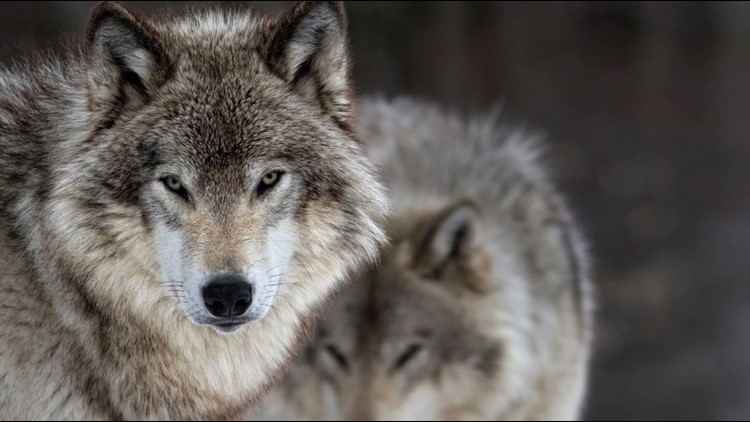BOISE, Idaho — The Idaho Department of Fish and Game Commission on Thursday extended wolf hunting and trapping seasons, according to the Idaho Press.
The unanimous vote put nine proposals into effect that extended the wolf hunting and trapping seasons in much of Southwest Idaho, where wolves are fairly rare. The commission's consideration of the topic brought in an enormous amount of public comment with 27,076 electronic statements pouring from people worldwide.
"It's a challenge when you get up to this scale," State Wildlife Manager Jon Rachael said about sifting through the comments. IDFG counted 5,675 comments that originated from Idaho residents, 55% of which supported the extension of the hunting and trapping seasons and 45% of which were against.
Rachael noted that trapping had less support than hunting in comments from Idahoans, with only 52% of the Idaho comments supporting the extension of the trapping season, as upland game hunters expressed concerns about wolf trappings' potential impacts on their bird dogs during their hunting season.
Comments originating from countries including South Korea, Australia and the United Kingdom were overwhelmingly against the proposals, with 84% of the overseas electronic submissions against expanding the seasons, Rachael said.
Because of the viral nature of the responses, Rachael cautioned against using the comments' general numbers and tone as representative of public at large.
"There is no way we should interpret the results as the public attitude as a whole," Rachael warned the commission. "This is 100% representative of folks who care enough to leave a comment in the first place."
Garrick Dutcher, a documentarian and member of the Living with Wolves nonprofit in Ketchum, agreed with Rachael's analysis, but said he believes public opinion in Idaho does not reflect the numbers presented to the commission.
"Idaho is different than most of the country, but I didn't think it would be so different in a broad based survey of people," Dutcher said.
Dutcher took issue with the two-week period given for public comment, a week shorter than IDFG's normal three-week comment period.
"We don't feel the Idaho electorate are fairly represented by any means," Dutcher said.
In January, the commission voted to expand the number of tags a hunter or trapper could buy from 20 to 30; 10 hunting tags went to 15 tags, and 10 trapping tags went up to 15 tags.
According to IDFG statistics, only five individuals harvested over 10 wolves last year.
"We don't expect there are going to be a bunch of people racking up wolves simply because they can buy that many tags," Rachael said.
Rachael said the wolf population in Idaho "remains robust." The number of canine carnivores living in the state was estimated at 1,541 animals in July 2019, a number the IDFG commission has decided needs to come down.
"Staff is not concerned that the adoption of an additional expansion will have a severe impact to the wolf population," Rachael said.
The extended trapping and hunting seasons are manifestations of the commission's goal of cutting the wolf population, a management style that has been the norm in Idaho since the state's wolf hunts started in 2009.
"The commission has taken progressively incremental steps to expand opportunity as we have learned more, and the harvest has increased in various small steps," Rachael said.
"The kind of expansions in these proposals are not extreme, where we have already expanded season length to year-round or to 10 or 11 months," he added. "It's a lot more days of opportunity, but you really don't have that many people out there trying to hunt wolves in June and July and August."
According to IDFG statistics, less than 1% of hunters who buy an Idaho wolf tag actually harvest an animal. Wolves that are harvested are generally taken as a matter of chance during a hunt for another big game animal, according to Rachael.
"The intent here is to prevent the expansion of the existing wolf population into new habitats where they would invariably have increased conflict with livestock," he said.
The goal is not to keep the wolf population sustainable, Rachael said, but rather to reduce the population. But when the population is at a level the IDFG Commission believes is right, then its decisions on harvest and tags will be more conservative.
That target number has not been set, however, as Idaho is only supposed to manage 15 packs of wolves. There is no upper threshold and there is no lower threshold, Rachael said. But no matter the commission's decision, managing wolves will be a complicated business.
"Wolf management remains an extremely emotional issue among folks, with those who are very strongly opposed to wolf management and those that will never be satisfied the department and commission are ever doing enough," Rachael said.
More from our partner Idaho Press: Nampa councilman denies threatening to withhold Salvation Army donations over satirical Facebook page
Watch more 'Idaho Politics'
See them all in our YouTube playlist here:



